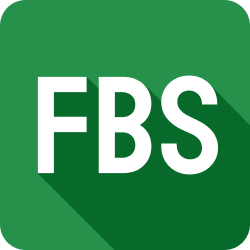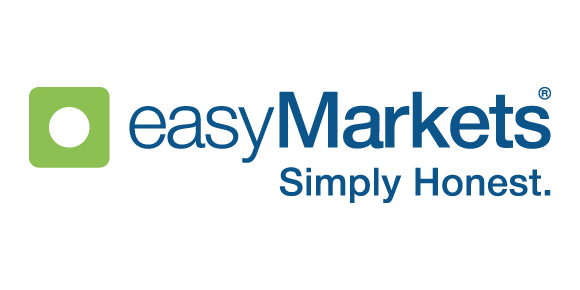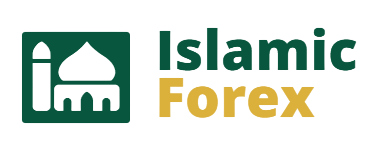Your Trusted Resource for Sharia-Compliant Forex Trading
Islamic Forex Trading Made Simple & Halal
Compare the best Sharia-compliant brokers with zero Riba, swap-free accounts, and full transparency. We ensure every Muslim trader can participate ethically.
100% Swap-Free Accounts
No Riba (Interest)
Halal Forex Trading
Top Regulated Jurisdictions Our Brokers Are Licensed Under
FCA
UK
ASIC
Australia
CySEC
Cyprus
DFSA
UAE
CMA
Saudi Arabia
What is Islamic Forex Trading?
Is Forex Trading Halal?
Forex Trading and Sharia Compliance.
Step-by-Step guide to Islamic Forex Trading
Halal Forex Trading – Final words.
Top 10 Islamic Forex Brokers 2026
Don’t waste precious time researching dozens of trading platforms. We’ve conducted rigorous verification to find the best Sharia-compliant brokers with genuine swap-free accounts that eliminate Riba.
Broker Logo
Broker Name
Features
Review/ Sign up
EXNESS
Swap-Free Accounts by default
Swap-Free Status across all account types
Max Leverage upto 1:2000
EasyMarkets
Convert any account to Islamic with no overnight swaps/interest on most instruments
1:400 Leverage
Fast withdrawal processing
AVA Trade
Islamic trading accounts available.
Unlimited swap-free duration on qualifying assets for long-term positions
upto 1:400 Leverage
EightCap
1:500 Leverage
$100 minimum deposit
XM
No substitute spreads or admin fees on major Forex pairs for Islamic accounts
Zero Admin Fees
Minimum deposit starts with $5
FBS
Swap-free available on Standard, Cent, and ECN account types
1:3000 Leverage
$10 min deposit
General Risk Warning: Trading Forex and CFDs carries a high level of risk and may not be suitable for all investors. 74-89% of retail investor accounts lose money when trading CFDs. You should consider whether you understand how CFDs work and whether you can afford to take the high risk of losing your money.
Introduction to Islamic Forex Trading
Navigating the global currency markets while strictly adhering to Islamic principles can be challenging. We simplify this process by providing comprehensive, trustworthy reviews of the best Sharia-compliant Forex brokers worldwide. Our mission is to ensure every Muslim trader can participate ethically by connecting them with truly swap-free accounts that eliminate Riba (interest), offering peace of mind and clarity in their financial decisions.
Understanding the nuanced requirements of Islamic finance, we meticulously evaluate Forex platforms that respect the fundamental tenets of Sharia law. Each broker in our curated list undergoes rigorous assessment, focusing not just on trading capabilities, but on their commitment to maintaining halal financial practices. We recognize that Muslim traders face unique challenges in the financial markets, where traditional interest-based transactions conflict with religious principles.
Our comprehensive reviews delve deep into account structures, trading mechanisms, and compliance protocols. We highlight brokers offering genuine Islamic accounts with zero overnight interest charges, ensuring traders can engage in currency trading without compromising their religious beliefs. By providing transparent, detailed insights, we empower Muslim investors to make informed decisions that align with their ethical and spiritual values.
Beyond mere recommendations, we serve as a trusted resource, bridging the gap between modern financial opportunities and Islamic economic guidelines. Our commitment extends to continuous monitoring of broker practices, ensuring that the platforms we endorse remain consistently compliant with Sharia standards. Through our dedicated service, we aim to democratize Forex trading for the global Muslim community, making sophisticated financial strategies accessible while preserving religious integrity.


Is Forex Trading Halal?
No Riba (Interest)
Riba is categorically forbidden in Islam. In forex, this prohibition directly targets overnight swap or rollover fees. Islamic swap-free accounts structurally eliminate these fees, ensuring all profit or loss derives solely from exchange rate movements—not interest.
No Gharar (Uncertainty)
Gharar refers to excessive uncertainty or speculation that borders on gambling. Islam encourages legitimate trade but condemns opaque transactions. This means avoiding excessively high leverage, steering clear of unclear derivatives, and ensuring transparent pricing.
Instant Execution (Taqabudh)
The hand-to-hand principle requires immediate exchange. Reputable Islamic brokers facilitate spot trading with intent of actual currency exchange, aligning with asset’s tangible nature and ensuring trades settle without delayed periods.
Is Forex Trading Halal?
The question is nuanced and requires careful theological and financial examination. In a conventional account, the answer is often no, due to the presence of overnight swap fees which are considered Riba (interest), a fundamental prohibition in Islamic financial principles. These interest-based transactions fundamentally contradict the ethical guidelines of Islamic finance, which emphasize fair exchange and prohibit exploitative monetary practices.
However, through specialized Islamic (Swap-Free) accounts, brokers have developed sophisticated solutions that eliminate these interest charges and adhere to the principle of immediate transaction settlement, making the practice potentially permissible for Muslim traders. These innovative account structures are designed to accommodate the specific religious requirements of Islamic financial law while providing traders with meaningful market participation opportunities.
The key differentiator lies in the transactional mechanism. Islamic swap-free accounts restructure trading dynamics to ensure that all exchanges occur without any form of interest accrual or payment. Brokers meticulously design these accounts to align with Sharia principles, implementing alternative compensation models that do not rely on traditional interest-based revenue streams.
We scrutinize each broker’s offering to verify genuine compliance, ensuring your trading activities are fully in line with Islamic finance laws. This rigorous assessment involves examining the account’s structural integrity, settlement processes, and fee structures to confirm they meet the stringent requirements of Islamic financial jurisprudence. By doing so, Muslim traders can engage in forex trading with confidence, knowing their financial activities remain ethically and religiously compatible.
Check out the Top 10 Sharia-Compliant Brokers for Muslim Traders.
Forex Trading by Region
Find the best Sharia-compliant brokers available in your country with local regulations and support.

Forex in Saudi Arabia
KSA’s regulated Forex market with CMA-licensed brokers.

Forex in UAE
Trade with DFSA & SCA regulated brokers from Dubai & Abu Dhabi.

Forex in Kuwait
Access top Islamic brokers compliant with Kuwait’s financial regulations.

Forex in Qatar
Navigate Qatar’s Forex market with Islamic-Forex brokers.
How to Select the Best Islamic Forex Brokers
Don’t waste precious time researching dozens of trading platforms in a complex and overwhelming market. We’ve already conducted the most rigorous and comprehensive verification process, so you don’t have to. Use our streamlined, user-friendly comparison tool below to quickly and confidently assess the critical factors most important to Islamic traders.
Our sophisticated platform allows you to evaluate key elements at a glance—from essential regulatory status and initial deposit requirements to the nuanced details of swap-free policies. We understand the unique needs of traders seeking Shariah-compliant financial solutions, which is why we’ve curated a selection of brokers that meet the highest standards of Islamic financial principles.
With our expertly crafted comparison guide, you can eliminate the guesswork and potential risks associated with selecting an unsuitable trading platform. Our tool provides transparent, clear, and concise information that empowers you to make an informed decision tailored to your specific trading requirements.
Take the decisive first step toward opening a fully compliant Islamic trading account with complete peace of mind. Our comprehensive resources and meticulously vetted broker recommendations ensure you can focus on what truly matters—developing your trading strategy and achieving your financial goals with confidence and integrity. Check out the Top 10 Sharia-Compliant Brokers for Muslim Traders.
Forex trading and Sharia Compliance
For too long, the conversation around Forex trading and Sharia Compliance has been stuck in a loop. It often begins with a simple, anxiety-inducing question: “Is it halal or haram?” and then tumbles down a complex rabbit hole of juridical terms. This binary framing, while important, can feel like a dead-end for the sincere Muslim seeking to participate in global markets. Consequently, it’s time to elevate the discussion. We must move from merely stating the prohibitions to clearly understanding the proactive, ethical framework that makes Sharia Compliance and Forex Trading not only possible but profoundly principled. This post distills the core Islamic finance principles into a concise, actionable lens through which to view any trading activity.
The goal is empowerment, not entanglement. By shifting our focus from fear of transgression to the pursuit of compliant opportunity, we open a path for confident participation. This nuanced approach acknowledges the market’s complexity while providing clear guardrails derived from divine guidance. Ultimately, understanding the “why” behind the rules transforms them from restrictive barriers into a powerful foundation for ethical commerce. Islamic Forex Trading vs Conventional Forex.
1. Reframing the Question: From Permission to Principle
The journey begins by changing our starting point. Instead of fixating on a final verdict, we must first build our understanding on the bedrock objectives of Sharia (Maqasid al-Sharia): the preservation of faith, life, intellect, lineage, and wealth. Islamic finance operates within this framework, aiming to promote justice, transparency, and shared risk in all financial dealings. Therefore, the discussion about Forex trading and Sharia Compliance is inherently about aligning our economic activities with these higher goals of community welfare and individual righteousness.
Within this context, the specific technical prohibitions are not arbitrary restrictions but vital protections. They serve as critical instruments to realize those higher objectives, particularly in preserving wealth from exploitation and uncertainty. Thus, when we examine the mechanics of forex trading through this lens, we move past a simplistic checklist. We engage in a meaningful evaluation of how our trading practices can either undermine or uphold the ethical spirit of the faith. This proactive mindset is the first and most crucial step for any Muslim trader.
2. The Twin Pillars: Demystifying Riba and Gharar
At the heart of the Islamic finance framework stand two fundamental concepts: the prohibition of Riba and the avoidance of Gharar. Understanding these is the master key to navigating Sharia Compliance and Forex Trading.
Riba, most commonly understood as interest, is categorically forbidden. In the context of forex, this prohibition directly targets overnight swap or rollover fees. These are interest-like payments charged or received for holding a currency position past the daily settlement time. Since these fees are predetermined and guaranteed irrespective of the trade’s outcome, they represent a form of riba. A Sharia-compliant account, therefore, must structurally eliminate these swap fees. Instead, all trader profit or loss must derive solely from the exchange rate movement between the two currencies, ensuring earnings are tied to actual market risk and effort, not merely the passage of time.
Gharar translates to excessive uncertainty, ambiguity, or speculative risk that borders on gambling. Islam encourages legitimate trade (al-bay’) but condemns transactions where the core elements are unknown or overly speculative. In forex, this means avoiding excessively high leverage that turns trading into a gamble, and steering clear of opaque derivatives or contracts where the underlying asset delivery is not intended. Furthermore, trading must be based on transparent information and real economic activity, not mere guesswork or manipulating minor price fluctuations devoid of real value. The principle here is to foster responsible investment and discourage wealth generation from zero-sum speculation.
3. From Theory to Platform: The Architecture of Compliance
Knowing the principles is one thing; seeing them implemented is another. Modern Islamic forex accounts, often labeled “Swap-Free,” are the practical embodiment of these rules. They are not just a marketing label but a specific operational model that adheres to the twin pillars.
Firstly, these accounts mechanically neutralize swap fees. The provider absorbs the cost or credits it internally, ensuring the trader’s ledger is never affected by interest calculations. However, providers typically charge a standardized administrative fee to cover their costs, structured as a flat handling charge rather than an interest rate. Secondly, to mitigate Gharar, reputable Islamic account providers often encourage or enforce prudent leverage limits and provide clear terms on permissible trading instruments. They facilitate spot trading with the intent of actual currency exchange, aligning with the asset’s tangible nature.
Therefore, engaging in Forex trading and Sharia Compliance requires due diligence. A trader must verify that a credible Sharia advisory board endorses their chosen platform’s “Swap-Free” offering and that its operations are transparent. The responsibility is shared: the institution provides the compliant structure, and the trader employs it with a conscious intention (niyyah) to trade ethically and within clear boundaries. This partnership makes navigating the global markets with faith and confidence a tangible reality.
Short Review of Islamic Forex Brokers
FBS Broker

| Unique Halal Feature | Key Advantage |
| 🕌 Full Swap-Free Availability | 🚀 High Leverage & Low Minimum Deposit: Offers very high flexible leverage (up to 1:3000 in some regions) and a low barrier to entry for beginners ($5 minimum deposit). |
| Swap-free status can be applied to Standard, Cent, and ECN account types, providing options for both new and advanced traders. | 🌐 Global Presence & Tools: Extremely popular global broker with fast execution speeds and a wide range of trading instruments and educational resources. |
| Halal Note: Islamic status ensures no interest is charged or received on positions held overnight. | 💡 Flexible Account Types: Choice of Cent accounts for minimal-risk practice and ECN accounts for professional, low-spread trading. |
| Unique Halal Feature | Key Advantage |
| 🕌 Convert Any Account to Islamic: Traders can easily request to convert their Standard, Premium, or VIP account to a Swap-Free status, rather than being restricted to a separate account type. | 🛡️ Unique Risk Management Tools: Offers proprietary tools like dealCancellation (cancel a losing trade within 6 hours for a small fee) and Freeze Rate (lock a price for a few seconds) to mitigate risk. |
| No Overnight Swaps/Interest on most instruments, ensuring compliance with the prohibition of Riba. | 🔒 Fixed Spreads & Guaranteed Stop Loss: Provides fixed spreads on its proprietary platform, guaranteeing trading costs are known upfront, plus a free Guaranteed Stop Loss feature to prevent slippage. |
| Halal Note: Full market access is maintained on the Islamic account, including their proprietary platform, MT4, MT5, and TradingView. | 📜 Highly Regulated: Backed by multiple reputable regulators including ASIC (Australia) and CySEC (Cyprus), providing a strong trust foundation. |
easyMarkets

EXNESS Broker

| Unique Halal Feature | Key Advantage |
| 🕌 Deeply Integrated Swap-Free: Swap-free status is automatically applied to several major account types (Standard, Pro, Raw Spread, Zero). | ⚡ Instant & Automated Withdrawals: Famous for its automated, instant withdrawal system (often 24/7), which builds immense client trust. |
| No Swap Fees on most instruments for a long period. A non-interest-based administrative charge may apply only after an extended holding time (e.g., 3-5 days), accepted as Ujrah (fee). | 💰 Ultra-Low Spreads: Highly competitive pricing, including the Raw Spread and Zero accounts with spreads starting from 0.0 pips. |
| Halal Note: Focus on transparency and high-volume trading, which reduces concerns about Gharar (excessive speculation). | 🛡️ Strong Regulatory Backing: Regulated by multiple top-tier authorities (FCA, CySEC, etc.), ensuring high security standards. |
XM Broker

| Unique Halal Feature | Key Advantage |
| 🕌 Zero Admin Fee on Majors: XM is notable for being one of the few major brokers that generally does not substitute wider spreads or higher administration fees for the absence of swap rates on major Forex pairs. | 📈 Competitive & Consistent Spreads: Known for maintaining the same fair spreads on Islamic accounts as on standard accounts (unlike some competitors who widen spreads). |
| Swap-Free status is easily activated on Standard, Micro, and Ultra Low accounts after opening. | 🎓 Educational Leader: Offers extensive, high-quality educational resources, webinars, and market research, making it excellent for beginner and intermediate traders. |
| Halal Note: Unlimited swap-free duration on qualifying assets, allowing long-term, position-holding strategies without incurring Riba. | 🛡️ Strong Regulation & Trust: Multi-regulated with a long-standing global reputation and offers Negative Balance Protection for all clients. |
| Unique Halal Feature | Key Advantage |
| 🕌 High-Speed Execution: Caters well to scalpers and active traders, emphasizing rapid order execution which aligns with the Sharia principle of “hand-to-hand” (instant) exchange. | 📉 Extremely Tight Spreads: The Raw Account offers spreads starting from 0.0 pips (plus a low commission), ideal for active and high-volume traders. |
| Swap-Free accounts are offered and can be applied to both the Standard and Raw account types. | 📊 Exceptional Crypto CFD Range: A strong choice for traders interested in a wide selection of Cryptocurrency CFDs, alongside Forex and other markets. |
| Halal Note: The focus on the Raw account (low commission/low spread) provides a clear, transparent cost structure rather than relying on swaps/interest. | 💻 Advanced Platform Options: Supports MT4, MT5, and integration with TradingView, providing premium charting and analysis tools. |
Eight Cap

Is Forex Trading Halal or haram in Islam?
Halal forex trading – Yes, Forex trading is halal in an Islamic Forex Account. Islamic Forex Trading, also known as Islamic Currency Trading, is considered halal or permissible under Islamic law. This is because it adheres to the principles of Islamic finance, which prohibits usury (riba) or the collection and payment of interest. In conventional Forex trading, traders often have to pay or receive interest due to overnight rollovers, which is not allowed in Islam. Hence, many Forex brokers offer “Islamic accounts” that ensure no interest is charged or paid, making the trading activity compliant with Sharia law. This allows Muslim traders to engage in Forex trading without compromising their religious beliefs.
Why is it important to choose the Right Islamic Forex Broker?
Choosing the right Islamic Forex broker is crucial for Muslim traders as it ensures compliance with Sharia law, which prohibits earning interest or “Riba”. A suitable Islamic Forex broker provides an interest-free or ‘swap-free’ trading account, which eliminates the payment or receipt of interest rates on overnight positions. This allows Muslim traders to participate in Forex trading without contravening their religious beliefs. Furthermore, a reputable broker will also offer a fair and transparent trading environment, secure trading platforms, competitive spreads, and excellent customer service. Therefore, the selection of the right Islamic Forex broker promotes ethical trading practices and facilitates a conducive trading environment that respects the principles of Islamic finance.
Can I Earn Money from Forex Trading?
Yes, you can earn money from forex trading. Forex, short for foreign exchange, involves the trading of different national currencies against each other. The forex market is the largest and most liquid financial market in the world, with trillions of dollars traded daily. Traders can earn money by accurately predicting future currency exchange rates, buying a currency at a lower price, and then selling it at a higher price. However, it’s important to note that forex trading involves significant risk and isn’t suitable for everyone. It requires a deep understanding of financial markets, a solid trading strategy, and the ability to withstand potential losses.
STEP-BY-STEP GUIDE TO OPENING AN ISLAMIC FOREX ACCOUNT
Step 1: Research and Choose a Broker
The first step in opening an Islamic forex trading account is researching and choosing a reliable broker. It’s essential to find a broker that offers Islamic accounts, also known as ‘swap-free’ accounts, because they comply with Islamic law, which prohibits usury or interest. Some well-known brokers offering Islamic accounts include Exness, FBS, easyMarkets, AVATrade, XM, and EightCap.
Step 2: Understand Islamic Forex Trading Rules
Before opening an account, familiarize yourself with the rules of Islamic forex trading. In addition to the prohibition of interest, these rules include the prohibition of gambling (which means all trades must be made based on real economic activity and not speculation), and the need for immediate exchanges (which means trades must be settled on the spot).
Step 3: Register for an Account
Once you’ve chosen a broker, please register for an account on their website. The process will typically require you to provide personal information, such as your name, address, and identification documents, for verification.
Step 4: Select the Islamic Account Option
During the registration process, select the option to open an Islamic account. If this option isn’t available during registration, contact the broker’s customer support team to request an Islamic account.
Step 5: Deposit Funds
After your account has been approved, you’ll need to deposit funds into it to begin trading. The broker will offer several deposit methods, including bank transfer, credit card, and e-wallets such as PayPal or Skrill. Choose the one that is most convenient for you.
Step 6: Start Trading
Once your account is funded, you can start trading. Use the platform provided by the broker to buy and sell currency pairs. Remember to make trades based on real economic indicators and not just speculation to stay compliant with Islamic law.
Step 7: Monitor Your Account
Regularly review your account to evaluate your trading performance. This will help you identify successful strategies and areas for improvement.
Step 8: Withdraw Profits
Finally, when you’ve earned profits from your trades, you can withdraw them from your account. Like deposits, the broker will offer several withdrawal methods. Choose the one that is most suitable for you. Remember, forex trading involves high risk, including the risk of losing your entire investment. Make sure to trade responsibly and seek advice from financial advisors if needed.
Islamic Forex Trading Review – Conclusion
Is forex trading halal or haram? – In conclusion, Islamic Forex trading offers a halal way or Sharia-compliant forex trading for Muslim traders to participate in the global financial market. It adheres to the principles of Islamic law, prohibiting usury (Riba) and uncertainty (Gharar), by offering swap-free accounts and ensuring full transparency in all transactions. This method of trading also emphasizes ethical and fair business practices. However, traders must verify whether the brokerage they select genuinely offers a Sharia-compliant forex trading environment. Islamic Forex trading is a testament to the flexibility and inclusiveness of the financial market, accommodating the religious beliefs of a significant portion of the world’s population while allowing them to participate in economic growth and wealth generation. Learn more about Islamic Forex trading and how it works.
Risk-free forex trading – The future of Islamic Forex trading holds significant potential as it continues to gain popularity within the financial market. This growth can be attributed to its compliance with Sharia law, which prohibits earning interest or “Riba” on loans or deposits, making it suitable for Muslim traders. Modern technology and digital platforms have made this form of trading more accessible, leading to an increase in demand. Additionally, the introduction of Islamic Forex accounts, also known as swap-free accounts, has encouraged more participation from Muslim traders. However, the volatility of the Forex market and the need for comprehensive knowledge about currency trading pose challenges. Hence, participants need to stay updated with market trends and acquire the necessary trading skills. As more financial institutions and brokers accommodate Islamic principles in their services, the future of Islamic Forex trading appears promising.
Note: We don’t claim to have enough expertise or authority to advise whether Forex trading is Halal or Haram or is allowed under Islamic principles. Hence seek appropriate guidance if you have any doubt as it involves religious sentiments.






